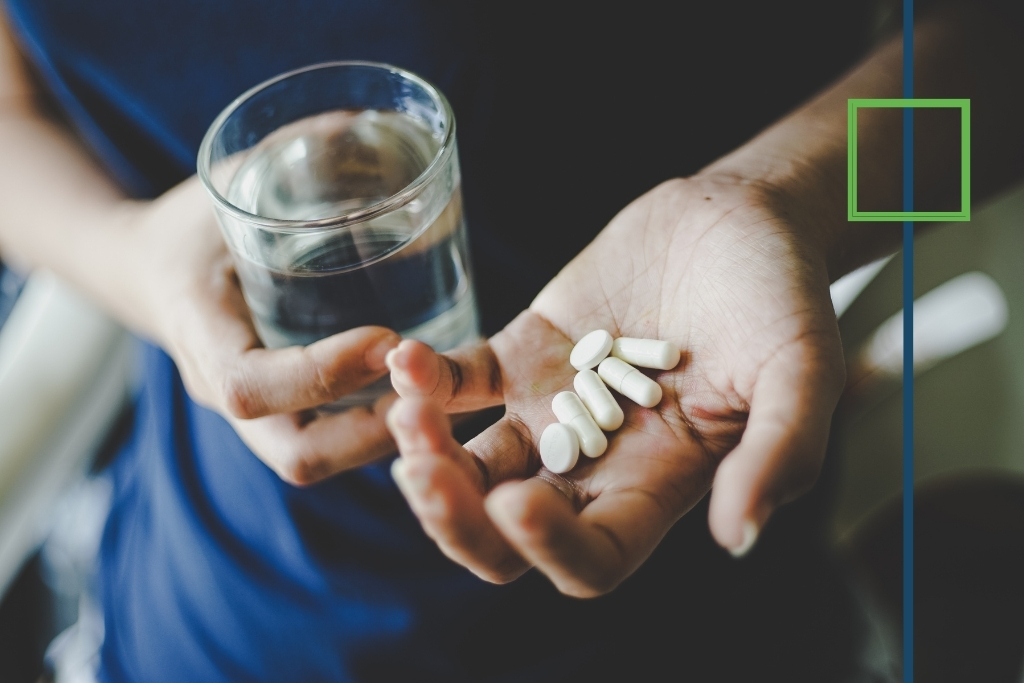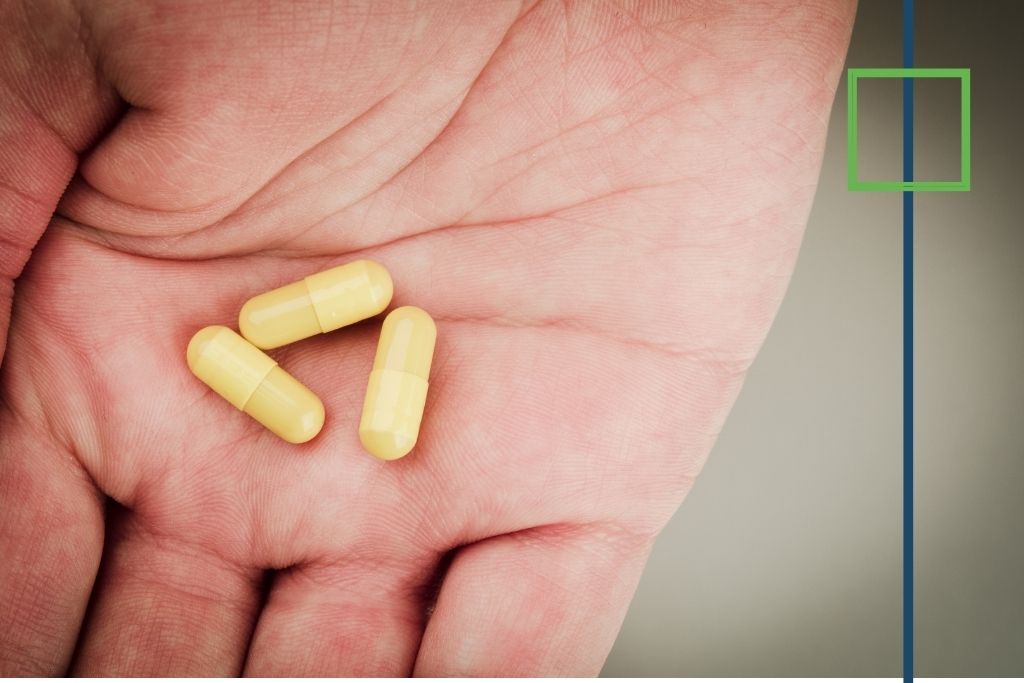Uses for Methadone
Today there are many different substance abuse treatment options, which are also commonly referred to as drug addiction. From specialized addiction treatment centers and programs to medications-assisted treatment to help an individual detox safely and medications to help reduce cravings and prevent relapse, opioid addiction treatment has come a long way.
One of the most commonly used medications in recovery from addiction to opioids, both prescription opioids like hydrocodone, oxymorphone, morphine, codeine, and fentanyl, and illicit opioids like heroin, is methadone. Methadone, along with a commitment to recovery, evidence-based behavioral therapy, and a strong support system, improves the odds of an individual experiencing long-term recovery from addiction to opioids.
Methadone is a synthetic analgesic drug used for the treatment of pain as well as to treat narcotic drug addiction. It is similar to morphine with longer-lasting effects. Common brands are Diskets, Methadone Intensol, Methadose, and Dolophine. A prescription is required to obtain methadone.


Get Your Life Back
Find Hope & Recovery. Get Safe Comfortable Detox, Addiction Rehab & Mental Health Dual Diagnosis High-Quality Care at the We Level Up Treatment Centers Network.
Hotline (877) 378-4154Why is Methadone Used in Addiction Treatment?
Drug addiction and the process of stopping using drugs are ongoing. The first step is to prevent the use of the drug, whether it be an opioid, alcohol, cocaine, meth, or any other substance. But stopping use is just the beginning. Addiction is a chronic, relapsing disease, and just like other chronic diseases such as asthma, diabetes, or arthritis, there isn’t a cure. However, with daily maintenance, addiction can be managed and anyone who has a drug addiction can live happy, abundant lives free from the devastating cycle of a substance use disorder.
The first step in reclaiming one’s life is stopping the use of the drug or drugs. Often medications can be helpful in this stage. Medications, like methadone, help in this process. The effects of methadone can help with uncomfortable, often debilitating withdrawal symptoms, support an individual staying in treatment, and also help to prevent relapse.
Discontinuing narcotic drug use such as the use of opioids can be difficult. From anxiety, sleeplessness, nausea, depression, and other issues, the body will crave using the drug again. Often these cravings are very challenging to overcome without the help of a medication such as methadone. Medications like methadone can help the body to adapt by slowing drug cravings and having a calming impact on the body.
Why is this Medication Prescribed?
Methadone is used to relieve severe pain in people who are expected to need pain medication around the clock for a long time and who cannot be treated with other medications. It is also used to prevent withdrawal symptoms in individuals addicted to opiate drugs and are enrolled in treatment programs to stop taking or continue not taking the drugs. Methadone is in a class of medications called opiate (narcotic) analgesics. Methadone works to treat pain by changing how the brain and nervous system respond to pain. In addition, it works to treat people who were addicted to opiate drugs by producing similar effects and preventing withdrawal symptoms in people who have stopped using these drugs.
Get Help. Get Better. Get Your Life Back.
Searching for Accredited Drug & Alcohol Rehab Centers Near You? Or Mental Health Support?
Even if you have failed previously, relapsed, or are in a difficult crisis, we stand ready to support you. Our trusted behavioral health specialists will not give up on you. Call us when you feel ready or want someone to speak to about therapy alternatives to change your life. Even if we cannot assist you, we will lead you wherever you can get support. There is no obligation. Call our hotline today.
FREE Addiction Hotline – Call 24/7What Special Precautions Should I Follow?
Before taking methadone,
- Tell your doctor and pharmacist if you are allergic to methadone, any other medications, or any of the ingredients in the methadone product you plan to take.
- Tell your doctor and pharmacist what prescription and nonprescription medications, vitamins, and nutritional supplements you are taking or plan to take. Be sure to mention the medications listed in the IMPORTANT WARNING section. Many other medications may also interact with methadone, so be sure to tell your doctor about all the medications you are taking, even those that do not appear on this list. Your doctor may need to change the doses of your medications or monitor you carefully for side effects.
- Tell your doctor what herbal products you are taking, especially St. John’s wort and tryptophan.
- Tell your doctor if you have any of the conditions mentioned in the IMPORTANT WARNING section or have or have ever had a blockage in your intestine or paralytic ileus (condition in which digested food does not move through the intestines). Your doctor may tell you that you should not take methadone.
- Tell your doctor if you have or have ever had difficulty urinating; an enlarged prostate (a male reproductive gland); Addison’s disease (a condition in which the adrenal gland does not make enough of certain natural substances); seizures; or thyroid, pancreas, gallbladder, liver, or kidney disease.

- Tell your doctor if you are breastfeeding. If you breastfeed during your treatment with methadone, your baby may receive some methadone in breastmilk. Watch your baby closely for any changes in behavior or breathing, especially when you start taking methadone. If your baby develops any of these symptoms, call your baby’s doctor immediately or get emergency medical help: unusual sleepiness, difficulty breastfeeding, difficulty breathing, or limpness.
- Talk to your baby’s doctor when you are ready to wean your baby. You will need to wean your baby gradually so that your baby will not develop withdrawal symptoms when he or she stops receiving methadone in breastmilk.
- You should know that this medication may decrease fertility in men and women. Talk to your doctor about the risks of taking methadone.
- If you are having surgery, including dental surgery, tell the doctor or dentist that you are taking methadone.
- You should know that this medication may make you drowsy. Do not drive a car or operate machinery until you know how this medication affects you.
- You should know that methadone may cause dizziness when you get up too quickly from a lying position. This is more common when you first start taking methadone. To avoid this problem, get out of bed slowly, resting your feet on the floor for a few minutes before standing up.
- You should know that methadone may cause constipation. Talk to your doctor about changing your diet or using other medications to prevent or treat constipation while you are taking methadone.
Long-Term Side Effects of Methadone
Methadone is typically not prescribed for long-term use. Thus, many people who use methadone over an extended period of time may be abusing or addicted to the drug. The longer and more frequently a person uses methadone, the higher the risk he or she will experience the negative long-term consequences of the drug.
Potential long-term side effects of methadone include:
- Nerve, liver, and brain damage
- Lowered attention span and trouble concentrating
- Nausea and vomiting
- Mood changes
- Cardiovascular problems
- Respiratory problems
- Changes in sexual function and menstruation (for women)
- Increased participation in risky behaviors
Additionally, people who use methadone for a long period of time are at an increased risk of developing dependence and/or addiction to the drug. Just like with other opioids, methadone can affect how a person interprets pain and can provide significant pain relief. This can be addictive over time and can result in individuals continuing to take methadone despite being advised not to.
People who use methadone are also more likely to overdose on the drug. This is because many people who use this medication do so to experience the “high” associated with opioids. Unfortunately, a large amount of methadone must be taken in order to experience the euphoric effects of the drug. Taking more methadone than what is prescribed or recommended can result in an overdose which can be deadly if not properly and promptly treated.
First-class Facilities & Amenities
World-class High-Quality Addiction & Mental Health Rehabilitation Treatment
Rehab Centers TourRenowned Addiction Centers. Serene Private Facilities. Inpatient rehab programs vary.
Addiction Helpline (877) 378-4154Proven recovery success experience, backed by a Team w/ History of:
15+
Years of Unified Experience
100s
5-Star Reviews Across Our Centers
10K
Recovery Success Stories Across Our Network
- Low Patient to Therapist Ratio
- Onsite Medical Detox Center
- Comprehensive Dual-Diagnosis Treatment
- Complimentary Family & Alumni Programs
- Coaching, Recovery & Personal Development Events
Common and Serious Side Effects of Methadone
Common side effects of methadone include:
- Restlessness
- Nausea or vomiting
- Slow breathing
- Itchy skin
- Heavy sweating
- Constipation
- Sexual problems
Serious side effects of methadone include:
Side effects should be taken seriously, as some of them may indicate an emergency. Individuals should stop taking methadone and contact a doctor or emergency services right away.
- Experience difficulty breathing or shallow breathing
- Feel lightheaded or faint
- Experience hives or a rash; swelling of the face, lips, tongue, or throat
- Feel chest pain
- Experience a fast or pounding heartbeat
- Experience hallucinations or confusion
What Happens if I Overdose?
As a powerful Opioid, Methadone can cause an overdose. An overdose occurs when someone takes too much of the medication, often without a prescription or beyond medical limits. An overdose is a dangerous situation that requires medical attention, so it’s important to recognize the signs.
All opioids have a risk of overdose. The risk is higher with methadone than with buprenorphine. The risk is especially high when you start treatment and stop taking opioids (methadone or other opioids) for a while and then start again. Mixing opioids with other drugs also increases the risk of overdose. If you or someone you know uses opioids, it is a good idea to have a free naloxone kit. Naloxone is a medication that can temporarily reverse the effects of an opioid overdose and allow time for medical help to arrive.
The symptoms of a Methadone overdose include:
- Constricted pupils
- Discoloration in the nails and fingertips
- Dizziness
- Hypertension
- Loss of consciousness
- Nausea and vomiting
- Respiratory depression (potentially fatal in extreme cases)

World-class, Accredited, 5-Star Reviewed, Effective Addiction & Mental Health Programs. Complete Behavioral Health Inpatient Rehab, Detox plus Co-occuring Disorders Therapy.
CALL (877) 378-4154End the Addiction Pain. End the Emotional Rollercoaster. Get Your Life Back. Start Drug, Alcohol & Dual Diagnosis Mental Health Treatment Now. Get Free No-obligation Guidance by Substance Abuse Specialists Who Understand Addiction & Mental Health Recovery & Know How to Help.
Are You Abusing Methadone?
While Methadone is used as a way to curb addiction and reduce cravings, it is a heavily-regulated drug. It is so regulated that patients who have been prescribed Methadone in an outpatient setting have to go to a clinic every day to be administered their dose. It is a powerful Opiate with potentially addictive qualities. People who start using Methadone to overcome their Heroin addiction are at a higher risk of abuse because they already have a history of Opioid dependency. Some addicts, in fact, prefer Methadone as their substance of choice. Any time someone uses more Methadone than they are prescribed, or uses it without a prescription, they are abusing the medication.
Methadone does not create the same euphoric effects as Heroin or Morphine because it is designed to do the opposite; the drug is formulated to block the pleasurable sensations of other Opiates. For example, suppose an individual who is being treated with Methadone attempts to get high by using Heroin. In that case, Methadone will block the euphoric effects of Heroin (and of all other Opioids). However, Methadone does have some euphoric effects. They are limited; however, they are also great enough that the National Highway Traffic Safety Administration has indicated that Methadone users aren’t “fit to drive” due to the side effects of Methadone.

Now that you’ve answered the question “what is methadone used for?”, it is important to follow the special precaution to avoid overdose. Methadone abuse can be difficult to overcome alone. Fortunately, you don’t have to do it alone. If you’ve tried to quit in the past but ended up using methadone again, that’s a clear sign you need professional help. Get them the safest help they need and deserve. Our team at We Level Up NJ specializes in creating an ideal environment and providing effective therapies.
Alumni Coordinator, Nicole Baxter’s Methadone Addiction Recovery Journey With Support From Daughter Video
Nicole Baxter’s Addiction Recovery Story and Testimonial Video
“I’m here with the Nicole Baxter, one of our alumni coordinators.
What does your bottom look like?
My bottom was like a spiritual bottom. I was I wanted to die every day. I was putting a lot of drugs in my system every day, trying to make the pain go away. And it wasn’t going away anymore. So I was using for no reason anymore, because when I first started using, that’s what that was for, was to make it all go away. And it was still there. So it was like a spiritual bottom for me. I felt dead inside, and I was looking for a way out. So I prayed really hard that night, and my brother a few days later called me.
How long were you in treatment for?
A long time. I went to detox for almost a month because I was on methadone when I came down here, so my detox was painful when I finally came.
Knowing that I was away from them was hard to deal with because it was like a reality check. It was the hardest part of getting sober.
It was my biggest excuse prior to coming to not like that was my excuse. Like, I can’t go to treatment, I can’t be away my kids, but, like, I wasn’t a mom anyway, so I was getting high every day, you know? And I struggled with telling my daughter the truth about where I was. She thought that I had just comedown here to visit her uncle.
It wasn’t until I was in, like, IOP one afternoon, my therapist had me go outside and make a phone call, and I told her that I had come down for detox. And in my head, I thought that she was gonna hate me. But it was the best conversation ever. All she said to me was, Mummy, I just want you to get better. I’m just happy that you’re getting better.
What is your life like today? In sobriety, in recovery?
I’m happy, sober happier than I was high. And I thought that I’d never be happy sober. I didn’t think it was possible.
What do you do for your recovery every day? I have sponsees that I talk to on a daily basis, so I give back what I was given, which is what I think keeps me sober at most. I go to meetings, I work in treatment. So I’m like hands on with clients all daylong, people that are right where I was. So I try my best to use my story to help them get to a better place.
Oh, yeah.”
Does Addiction Rehab Work?
The success of treatment can vary from person to person, but longer stays in treatment frequently lead to better outcomes. Long-term rehabilitation is rarely aided by detox alone. Is treatment effective? Compared to not attending treatment, attending treatment boosts a person’s chances of long-term recovery.
Experience Transformative Recovery at the We Level Up Treatment Center.
See our authentic success stories. Get inspired. Get the help you deserve.



Start a New Life
Begin with a free call to an addiction & behavioral health treatment advisor. Learn more about our dual-diagnosis programs. The We Level Up treatment center network delivers various recovery programs at each treatment facility. Call to learn more.
- Personalized Care
- Caring Accountable Staff
- World-class Amenities
- Licensed & Accredited
- Renowned w/ 5-Star Reviews